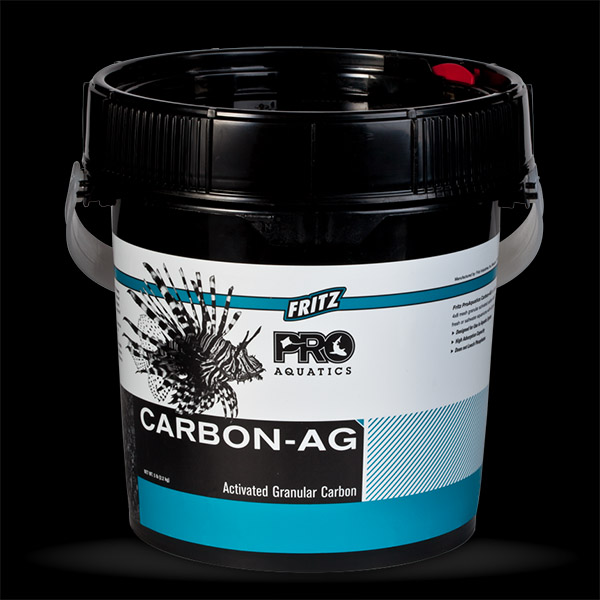Fritz Carbon AG 8lb

- Produced from Bituminous Coal
- Will Not Leach Phosphate
- Large Surface Area – Over 300,000 Square Feet Per Ounce
- 4×8 Mesh Granular Carbon
Fritz Carbon AG is a high-quality, 4×8 mesh granular, activated carbon ideal for use in fresh or saltwater aquariums with all types of filters. Fritz Carbon AG removes dissolved organic compounds (DOC), agents that discolor aquarium water and cause odors, chlorine and chloramines. It will not leach phosphate into the aquarium.
Produced from bituminous coal by a high-temperature activation process under stringent quality control. Fritz uses a special, patented, high-pressure steam activation process that produces superior pore space throughout each individual granule. The carbon is then washed in hydrochloric acid to reduce water and acid-soluble compounds and improve purity. This treatment creates the porosity by leaving a carbon skeleton sponge. It has a large surface area (each ounce contains over 300,000 square feet of usable, adsorptive surface area), high mechanical hardness, high pore volume and chemical stability.
Directions & Dosage
Use 1/8 lb (approx. 1/2 cup) for every 20 gallons (78 liters) of aquarium water. The amount of carbon required may vary from system to system. Place in high flow area of filter to maximize water flow through the carbon. Monitor the clarity of water and adjust the amount of carbon if necessary. For best results, replace carbon every two weeks as part of regular tank maintenance.
To keep the carbon “active,” Carbon AG has not been pre-washed. Therefore, it is necessary to thoroughly rinse with cold water. After rinsing, place carbon in a filter media bag.
- No equipment restrictions necessary
- No contraindications: can be used with all of our other products and meds
- Carbon AG has not been pre-washed; rinse thoroughly in cold water before use
- Place Carbon AG in a filter media bag like Fritz Super Sack
- Overdosed? Observe livestock for distress, remove excess carbon from system






